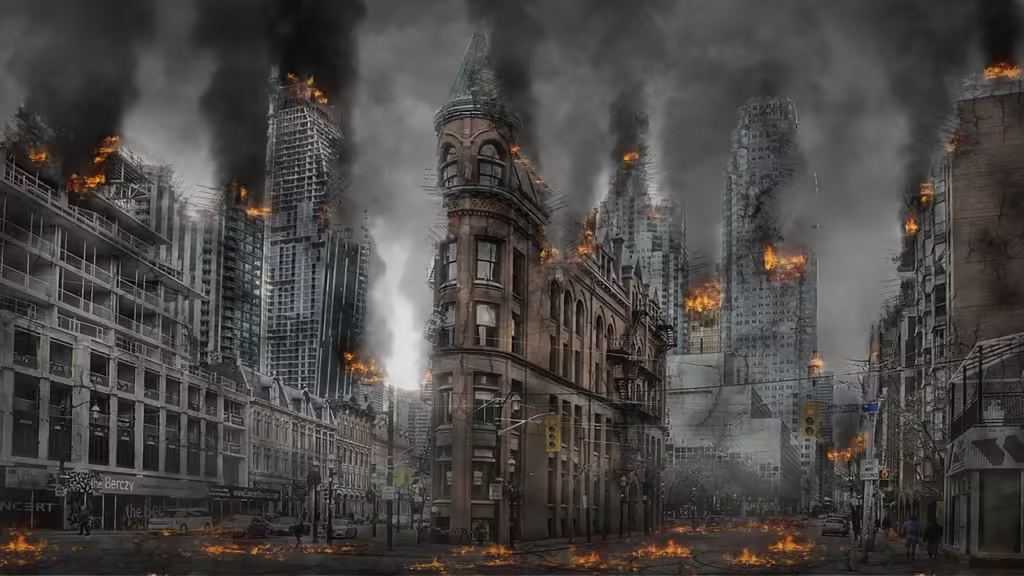
Images are Indicative
Beirut Under Fire Again
In September 2024, Israel launched a series of devastating attacks on Beirut, leaving the city in chaos. The once vibrant capital of Lebanon, already struggling with political and economic challenges, has now become a warzone. The attacks have shattered lives, destroyed infrastructure, and plunged Beirut into a state of despair. This new wave of violence has brought back memories of past conflicts, turning the city into a living hell for its residents.
The 2024 Attacks: A Sudden Escalation
The recent strikes by Israel on Beirut come amid rising tensions between Hezbollah and Israel. The conflict, which has simmered for years, escalated dramatically in September 2024, leading to heavy bombardment of the city. Key areas, including civilian neighborhoods, critical infrastructure, and Hezbollah-controlled regions in southern Beirut, have been severely affected.
The scale of destruction is immense. Homes, schools, hospitals, and businesses lie in ruins, with countless civilians caught in the crossfire. The attacks have also caused a massive humanitarian crisis, with thousands of people fleeing the city to escape the violence. Beirut, once a symbol of resilience, now faces some of its darkest days.
Beirut Becomes a Warzone: The Human Cost
The people of Beirut are paying the highest price in this conflict. As airstrikes rain down, thousands have been displaced, with many living in makeshift shelters or forced to leave their homes entirely. The city’s hospitals, already stretched due to economic hardships, are overwhelmed by the number of injured. Medical supplies are running low, and power outages make it difficult for emergency services to operate.
Beirut’s once-bustling streets are now deserted, filled with debris and the sounds of explosions. The psychological impact on the city’s residents is profound, as fear and uncertainty grip the population. Children, in particular, are bearing the brunt of the trauma, with many witnessing their homes and neighborhoods destroyed.
Destruction of Beirut’s Infrastructure
The September 2024 attacks have left Beirut’s infrastructure in ruins. Key bridges, roads, and power stations have been targeted, cutting off essential services like electricity and water. The destruction of communication networks has left the city isolated, making it difficult for aid to reach those in need.
The city’s economy, already on the verge of collapse before the attacks, has been further crippled. Businesses are shuttered, and job losses are rising as industries struggle to recover from the constant bombardment. Beirut, which has been through so much in the past, now faces an uncertain future.
International Response and Humanitarian Crisis
The international community has expressed deep concern over the escalation of violence in Beirut. Humanitarian organizations are calling for immediate ceasefires and urging both sides to prioritize civilian lives. However, the delivery of aid has been hampered by the ongoing conflict, making it difficult to provide food, medical supplies, and shelter to the affected population.
Countries around the world are watching the situation closely, with diplomatic efforts underway to de-escalate the conflict. However, the road to peace seems distant as Beirut continues to burn under relentless attacks.
Conclusion: Beirut’s Uncertain Future
As of September 2024, Beirut has become a city under siege. The Israeli attacks have turned the once-vibrant city into a place of despair and destruction. With homes in ruins, families displaced, and a humanitarian crisis unfolding, Beirut is now a shadow of its former self. The people of the city are left to wonder how long this hell will last and what the future holds for them.